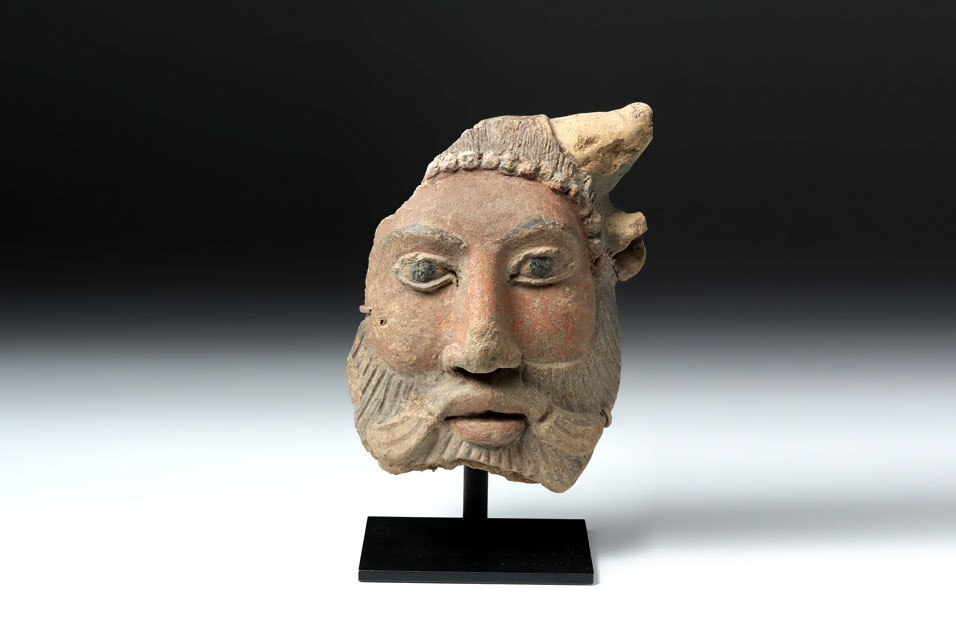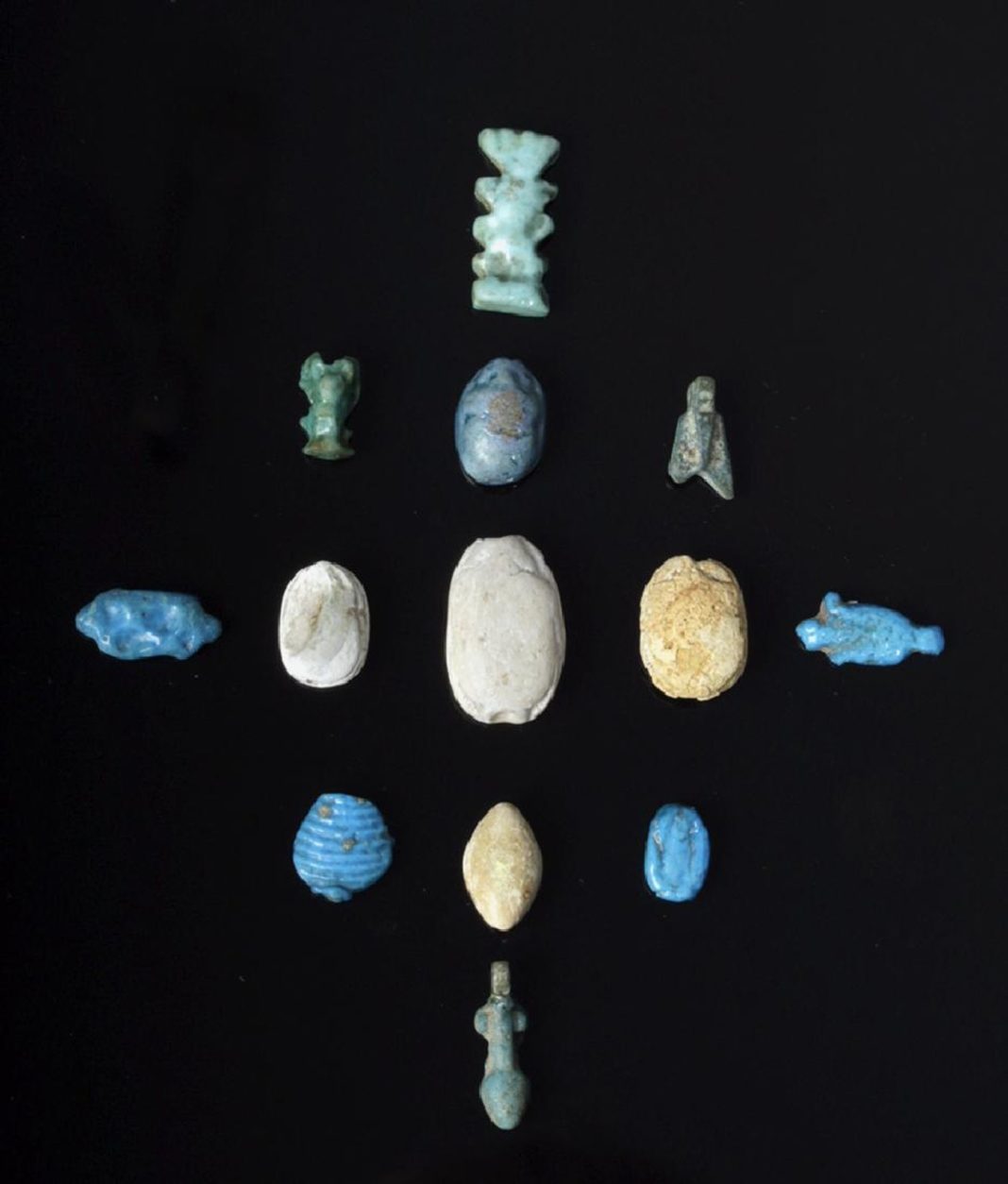More than 300 lots of expertly curated antiquities from Egypt, Greece, Rome and the Near East will take the spotlight in Artemis Gallery’s Thursday, April 26 online auction. The start time is 10 a.m. Eastern.
A truly spectacular offering, the blended contents showcase the very best holdings from two advanced collections. One of those collections has been kept in climate-controlled storage for more than 20 years. Remarkably, most of the items entered in the sale have never before appeared at auction.
“This sale is tailor-made for any collector who appreciates the classics,” said Artemis Gallery Executive Director Teresa Dodge. “There’s a look of exceptional quality from the first lot to the last and many pieces are extremely rare and of a type seldom seen in the marketplace.” As is the case with every Artemis Gallery auction, all items convey with an unconditional guarantee that they have been legally acquired, are legal to sell, and are exactly as described in the catalog.
The event will open with an unusually comprehensive array of Egyptian antiquities. There are both stone and earthenware vessels – some exhibiting a high level of artistic sophistication – as well as sarcophagus masks and other funereal relics, amulets and figural objects.

A pre-dynastic Naqada II terracotta lugged jar is painted in an appealing pattern of tightly packed wavy lines that radiate around the vessel horizontally. Based on similar painted pottery from the time of its manufacture (circa 3500-3200 BCE), the vessel’s design is likely meant to represent waves on the Nile. This well-preserved example is estimated at $4,000-$6,000.
Another remarkable survivor from the same timeframe is a coil-formed Nile silt-pottery vase with a highly burnished, russet-hued surface made with a thin iron-oxide slip. The upper portion of the ovoid vessel is a lustrous black, an effect created by exposing the ware to thick clouds of smoke in an oxygen-deprived environment. The effect rendered is quite stunning. Estimate: $5,000-$7,500
The mysterious funeral rituals of Ancient Egypt become even more fascinating when the implements and arts involved in mummification and entombment are studied. Among those entered in the auction are a circa 712-300 BCE sarcophagus mask with haunting stone and bronze eyes, $5,000-$7,000; a UL-tested 18th dynasty canopic jar with the painted image of the god Imsety, $3,000-$4,000; and a striking circa 712-300 BCE wooden sarcophagus panel richly painted with images of cobras, $2,000-$3,000. Additionally, there are a number of ushabti of faience or painted-wood with hieroglyphs.
The Greek pottery selection includes many productions of outstanding quality and distinguished provenance. Three lots previously auctioned by Christie’s include a pair of Magna Graecia ceramic “lady of fashion” plates, $4,500-$6,500; a circa 325 BCE Apulian volute krater with distinctive images of women’s head on the handles and painted in profile on the body of the vessel, $6,000-$9,000; and a Gnathian (Magna Graecia, southern Italy) situla attributed to the Toledo Painter. Of grand form, standing 12¼ inches high with a rope-like clay handle, it is elaborately decorated with a medley of decorative elements, such as laurel leaves, doves and grapevines. Its spout replicates a comedic or satyr theater mask. Estimate: $19,000-$28,500

Other highlights in the category include a cast-bronze phiale (libation bowl), Hellenistic Period, 4th to 2nd century BCE, with an incredible smooth turquoise and muted gold patina, $2,000-$3,000; and a circa early 6th-century Etruscan Bucchero chalice, ex Royal Athena Gallery, similar to an example in the British Museum’s collection, $5,000-$7,000. An early 5th century CE Etrurian polychrome antefix depicting the river deity Achelous is dramatically sculpted to emphasize the character’s piercing, well-outlined eyes, facial “hair” and the horn rising from one side of his head. It is estimated at $13,000-$19,500.
Moving into the period of Roman cultural dominance, Artemis Gallery takes great pleasure in presenting a number of important objects. A superb green-glazed pottery chalice from the Roman Imperial Period, circa 1st century BCE to 1st century CE, is embellished with three rows of staggered bas-relief pinecone scales. Painted in spring green with a golden-yellow interior, the visually pleasing vessel is expected to make $6,000-$9,000.
A sensational Roman cast-bronze handled oinochoe, circa 1st-2nd century CE, exhibits a golden-bronze coloration along with dense areas of pale and dark green known as “river” patina. This appearance is consistent with the vessel being found in or near a source of moving water. Truly a piece that would take pride of place in any antiquities collection, it is expected to attract a winning bid of $2,000-$3,000.
The auction also features more of the exquisite Ancient Roman glass collectors have clamored for in past Artemis sales, as well as wearable ancient jewelry. Examples of the latter include a circa 3rd century CE 22K gold ring with a sardonyx cameo depicting Medusa, ex Christie’s, $4,000-$6,000; and a pair of 18K gold loop-and-dangle earrings, circa 2nd century CE, estimated at $800-$1,200.
Absentee and Internet live bidding for Artemis Gallery’s Thursday, April 26 auction will be available through LiveAuctioneers.com. An Artemis Gallery COA will accompany each auction lot. For additional information, call Teresa Dodge at 720-502-5289 or email teresa@artemisgallery.com.

























